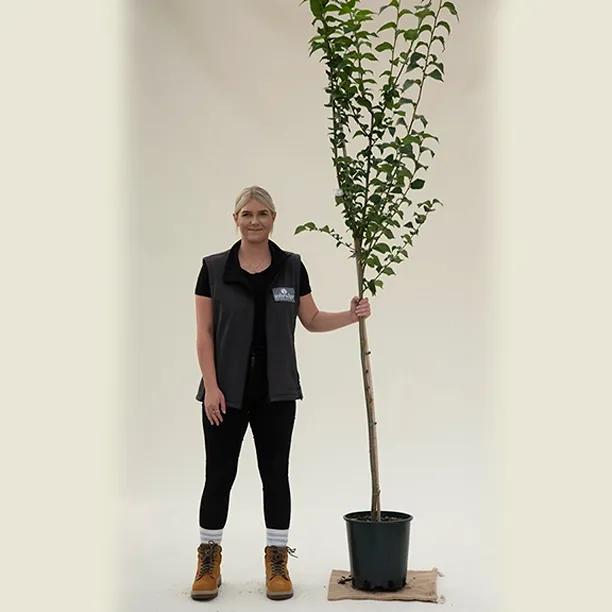Wingham Elm Trees
Honest Delivery Prices- Dutch Elm disease resistant
- Fast growing
- Upright canopy
- Wind resistant, very hardy, tolerates urban pollution.
- RHS Plants for Pollinators
- Pot Grown
- To over 12 metres
Recommended extras
Description
Wingham Elm Trees
This highly Dutch Elm Disease (DED) resistant Elm is a large, fast-growing variety. It may be the closest thing we will ever see to a resurrection of the Elm landscapes of yesteryear.
Once mature, Wingham Elms will provide a large, fairly upright canopy of mid-green, oval-shaped leaves.
It flowers from an early age, and in good conditions can grow up to 7m high in 10 years.
Browse all of our large garden trees.
Features:
- Probably the most Dutch Elm Disease resistant cultivar available
- Upright habit
- Requires rich, fertile, moist soil to thrive.
- Wind resistant, very hardy, tolerates urban pollution
- RHS Plants for Pollinators
- Pot grown
- To over 12 metres
Growing Wingham Elms
Elms naturally love a moist, fertile soil close to a water source. But they were also widespread street trees, so they will grow in pretty much anything, and are practically immune to urban pollution.
Growth rate will be a bit disappointing on chalky soil, but as long as it has plenty of sun and mulch it will get there eventually!
In dry soils, Elms need extra help to establish:
- We normally recommend you water a new tree well in its first Summer, and during long dry spells in its second.
- With Elms, we would water well in Summer for 2 years, then in dry spells in year 3.
- Mulch is always recommended, doubly so with Elms. If your soil is poor, we recommend a rich mulch of manure.
Planting Instructions
Did You Know?
Named after the Kentish village where it was successfully trialled by Dr David Herling (1963-2020) at Resistant Elms; the original hybrid came from the Institute of Plant Protection (Istituto per la Protezione delle Piante) in Florence, Italy.
It was developed from a complex, multi-stage hybridization of the following Elm species: Ulmus wallichiana, U. minor, U. pumila, and U. × hollandica ‘Vegeta’.
After testing for DED resistance, Wingham scored 5 out of 5, with no dieback at all (which is the symptom that actually kills trees), and a trivial 1.44% defoliation - barely a scratch!
It shows good promise as a host tree for the White-letter Hairstreak butterfly, which is an endangered species due to its complete dependence on Elms. It's unlikely that any hybrid Elm will ever be quite as palatable to Hairstreaks as our few remaining native elms, but insects adapt quickly and Wingham is certainly good enough to save the species.



 2.webp)
 1.webp)